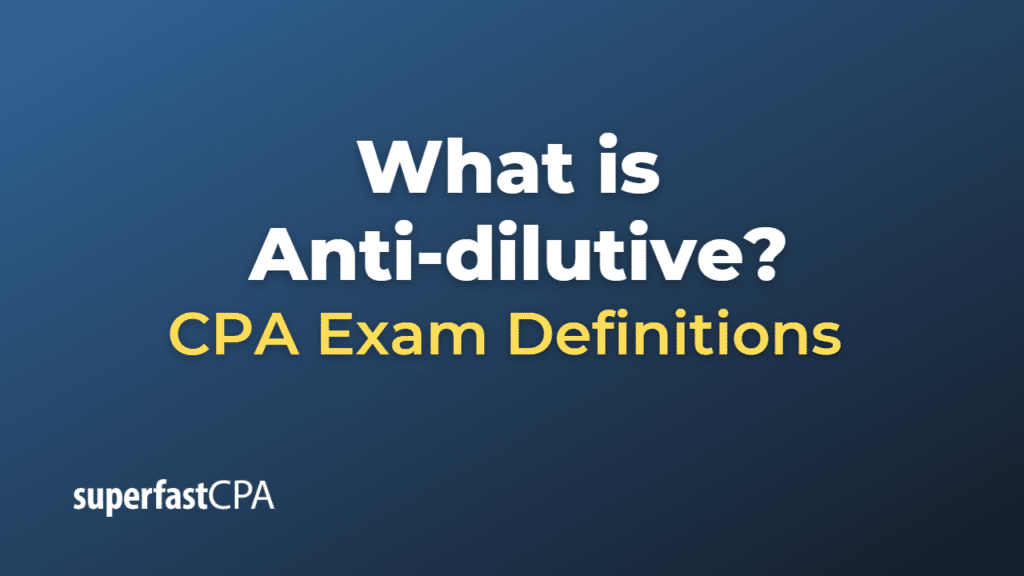Anti-dilutive
“Anti-dilutive” refers to any financial measure or action that protects an investor’s ownership percentage in a company from being reduced or diluted. Anti-dilutive measures help maintain an investor’s ownership stake by adjusting shareholdings in the event of activities such as issuing new shares, stock options, or convertible securities.
A common anti-dilutive mechanism is the anti-dilution provision included in investment agreements, which adjusts an investor’s conversion price in the event of a down round (i.e., a round of financing where shares are issued at a lower price than in previous rounds). These provisions can be structured in different ways, such as full ratchet or weighted-average, to determine the extent of the adjustment.
In the context of earnings per share (EPS) calculations, “anti-dilutive” refers to securities that, if exercised or converted, would increase the EPS or reduce the loss per share. These securities are excluded from the diluted EPS calculation to avoid understating the company’s earnings or overstating its losses per share.
Example of Anti-dilutive
Here’s an example of an anti-dilution provision in an investment agreement:
Suppose an investor, John, purchases 100,000 shares of Company X for $1.00 per share, representing a 10% ownership stake in the company. The total number of outstanding shares for Company X is 1,000,000.
Later, Company X undergoes a down round of financing, issuing 200,000 new shares at $0.50 per share. If there were no anti-dilution provisions in place, John’s ownership percentage would be diluted, as the total number of outstanding shares would now be 1,200,000. His 100,000 shares would represent only 8.33% ownership.
However, John’s investment agreement includes an anti-dilution provision with a weighted-average adjustment. This provision adjusts his original conversion price of $1.00 per share, reducing it to a new conversion price that accounts for the down round. As a result, John would receive additional shares to maintain a similar ownership percentage in the company.
Let’s say the new conversion price is $0.75 per share. In this case, John’s 100,000 shares would convert to 133,333 shares (100,000 x ($1.00 / $0.75)). Now, with the total number of outstanding shares at 1,200,000, John’s ownership percentage is approximately 11.11% (133,333 / 1,200,000), helping to mitigate the dilution from the down round.













